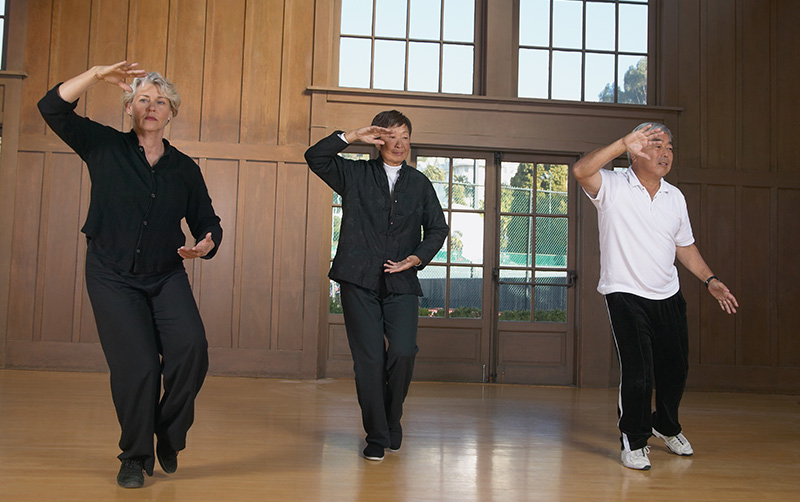
Did you know:
- 1 in 4 seniors over age 65 falls each year
- Once you fall, you are 2-3 times more likely to fall again
- 10-20 percent of falls cause serious injuries
Falls have the potential to rob older adults of independence, the ability to perform everyday activities and live at home. Head injuries and hip fractures are the most common injuries resulting from falls.
What about you?
- Have you fallen in the past year?
- Are you worried about falling?
- Do you want to be able to catch yourself when you feel yourself start to trip?
Simple things you can do to reduce your risk of falls:
1. Do Strength & Balance Exercise
Exercises that make your legs stronger and improve your ability to balance are most helpful. Tai chi is highly recommended for improving strength and balance. Valley offers FREE weekly “Tai chi: Moving for Better Balance” classes for beginners and intermediate/advanced students, taught by physical and occupational therapists. For more information and to view the class schedules, visit the links below:
Balance and Exercise for Stroke Survivors: Beginners
Balance and Exercise for Stroke Survivors: Intermediate + Advanced
2. Have Your Eyes Checked Regularly
Have your eyes checked by an eye doctor at least once a year, and be sure to update your eyeglasses if needed. Be aware of how your glasses may affect your perception, making things seem closer or farther than they really are. For more info, visit valleymed.org/eye.
3. Fall-proof Your Home
- Remove rugs, furniture and other items that you could trip over.
- Add grab bars next to the toilet and inside and outside your tub or shower.
- Have railings on both sides of any stairs.
- Make sure your home is well-lit—add more lights or use brighter bulbs.
4. Talk to Your Doctor
- Ask your healthcare provider to evaluate your risk for falling and ask for specific fall prevention recommendations.
- Have your provider or pharmacist review both your prescription and over-the-counter medications to see if any make you dizzy or sleepy.
- Ask your provider about taking Vitamin D supplements.
Recommendations from the Centers for Disease Control.


All the information you provide very helpful. Thank you
Thanks for reading the We Are Valley blog!
An athlete my whole life… Not so much any more… Don’t have the strength and endurance at all. Am sore often after activities. Have tripped and fallen a number of times. The tai che sounds interesting to me. Would like to know more.